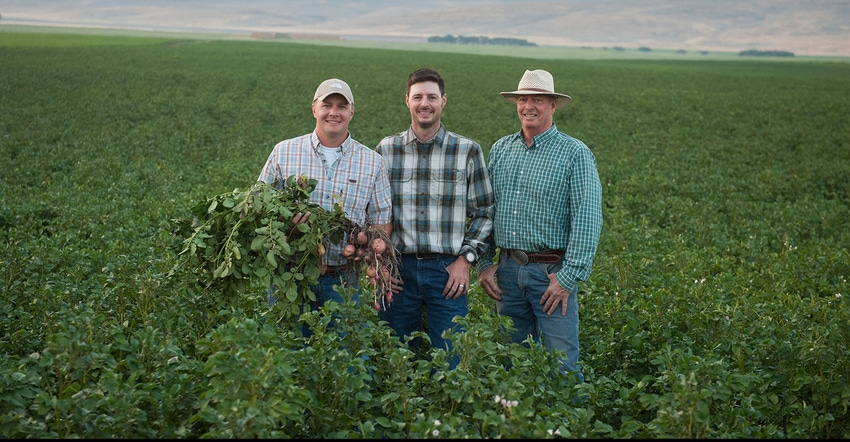
Four months ago Oregon brothers Justin and Sheldon Heffernan were about to sign a $1 million export contract with a $500,000 payment up front to grow, bale, and ship several thousand tons of alfalfa hay.
Then the pandemic hit, and the deal vanished.
“I never could have imagined what kind of ripple effect corona would have throughout ag, let alone the world,” says Justin, 36. He and Sheldon, 33, grow around 2,000 acres of alfalfa hay, timothy, carrot seed, garlic and industrial hemp for distillate.
“The export alfalfa contract was just the first disruption,” he explains. “This has trickled into every corner of our operation.”
The brother-partners actively work to pay-off operating lines and move forward with production. “The bank is still with them,” says Chris Heffernan, their father. “They’re trying to figure out how to stay in the fight.”
And they have. After the export deal fell apart the brothers pivoted and began working their robust network of potential customers in the Pacific Northwest and beyond.
“Networking has been huge,” says Justin. “We never feel like when one door closes, we don’t have another to open. We always try to have a plan A, B and C on every crop. We just try to be very maneuverable.”
When his sons realized they wouldn’t get the export contract, “they put their head down and charged,” Chris says. “They’re trying to work on deals where they get paid up front, to backfill from the export market loss.”
The brothers’ attitudes have gone a long way to weather the storm.
“My brother and I are very motivated,” says Justin. “We’ve always been that way. We didn’t get a bunch of property or equipment handed to us free and clear, and frankly, we like that. When corona hit, we looked at each other and said, ‘We’ve been faced with plenty of adversity before, this is another step we need to get around.’”
And, they’re doing it without any government handouts. USDA’s CFAP payments go to farmers able to prove a price decline of at least 5%; they go to farmers who produce a wide range of commodities. But the words ‘hay’ or ‘alfalfa’ or ‘Timothy’ do not appear in USDA’s qualifying list.
So, apparently the Heffernans’ $1 million lost contract doesn’t really count.
Corn belt winners
As of June 15 most of the $3 billion in CFAP payments made to over 220,000 farmer applicants were headed to the Corn Belt. Over $750 million went to non-specialty crop farmers - the usual suspects, corn, soybeans and wheat. Over 1.4 billion went to livestock and $667 million went to dairy. Just $53 million went to specialty crop growers, mainly fruit and vegetable growers. (These numbers will grow as the Aug. 28 application deadline approaches.)
“I feel like my sons are the forgotten farmers,” says Chris Heffernan. “For some reason they’re not in the equation. If anyone could use some help it’s the growers with land payments who aren’t growing corn or soybeans.
“This is D.C. picking winners and losers,” he adds. “We don’t want a free ride, but if they’re going to help people, why not them?”
Yet, Justin doesn’t completely share his dad’s viewpoint.
“We’ve never really been a handout kind of operation,” he says. “We want to earn what we’re getting, and we don’t want to feel someone had to help us along. We want to be sure we are doing everything in our power to do our job correctly and take that weight on ourselves.
“We want to win at farming, and do a great job providing a great product for a great country,” he adds. “I’m glad there are programs out there for farm families, but we don’t have those support networks. We’re just trying to take care of ourselves. We bear the burden of risk and don’t expect anyone else to cover our mistakes.”
Whew. What a breath of fresh air it is to hear this young man talk.
“It’s our responsibility to this country and our family to figure out how to go forward, even with circumstances we can’t plan for,” he concludes.
Amen to that.
The opinions of the author are not necessarily those of Farm Futures or Farm Progress.
Read more about:
Covid 19About the Author(s)
You May Also Like






